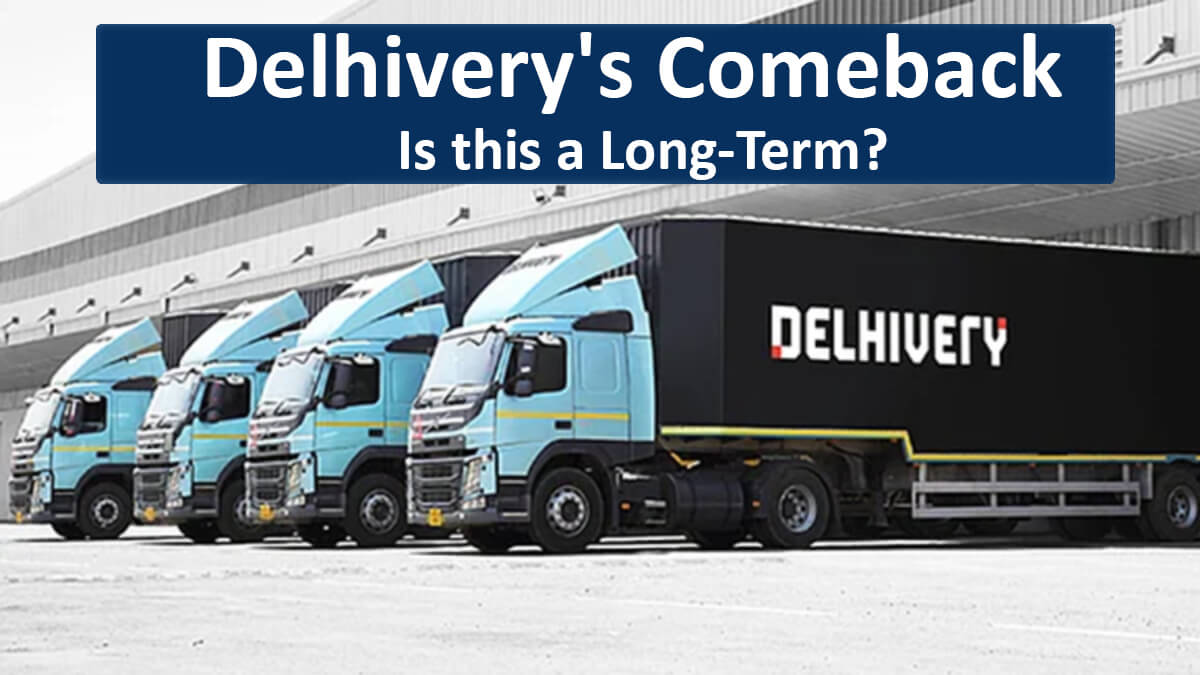Delhivery, a well-known logistics company in India, has recently shared its Quarter 4 results. For the first time, the company has announced a profitable year in Financial Year 2025. Delhivery made a profit of ₹72.6 crore in the fourth quarter. This is a big change from the ₹68.5 crore loss in the same period last year.
But what caused this profit growth? Which parts of the company helped the most? Can this growth continue in the future?
In this blog post, we will answer these questions. First, we will explore Delhivery’s story and its beginnings. Then, we will look at the company’s results from the fourth quarter of Financial Year 2025. Finally, we will discuss the company’s expansion and future plans.
TimeLine of Delhivery
Start of Delhivery
Delhivery began in 2011. At that time, e-commerce was new in India, but becoming more popular. However, the infrastructure for e-commerce was not growing fast enough. Regular delivery services were not ready for e-commerce either. It was hard to handle cash on delivery, and the last part of delivery to customers was not smooth. There was a clear need in the Indian e-commerce market.
Five young professionals created Delhivery to fill this need and take advantage of the growing e-commerce market. They started simply. Sahil Barua, Mohit Tandon, Suraj Saharan, Bhavesh Manglani, and Kapil Bharati began with food delivery. At first, Delhivery only handled food delivery in corporate areas of Gurugram.
The founders noticed that their delivery partners were only busy during lunch and dinner. They were free the rest of the time. So, Delhivery’s founders changed to e-commerce. The company partnered with e-commerce companies like Urban Touch and Healthkart. By 2011, Delhivery was handling 500 shipments each day.
Growth of Delhivery
In 2012, Delhivery received its first major funding. Times Internet Limited invested $1.5 million in the company. With this investment, the company’s workforce grew from 150 to 1,000 employees. The number of shipments handled also increased from 500 to 9,000. By the end of 2012, the company’s operations had spread to Chennai, Hyderabad, and Mumbai. From 2015 to 2017, the company opened a fulfillment center in Dubai and began international operations. The company also raised $85 million from Tiger Global.
By 2019, Delhivery had become a unicorn (a startup company valued at over $1 billion). After raising $413 million from SoftBank Vision Fund, CLSA Capital Partners, and Steadview Capital, the company’s valuation crossed $1 billion.
In May 2022, the company went public. Delhivery raised ₹5,200 crore through its IPO. However, the company’s financial performance was not strong until recently. Until Financial Year 2024, the company was still losing money.
But now, the situation seems to be changing. As mentioned earlier, Delhivery has reported its first full year of profit after listing. It made a profit of ₹162 crore. In Financial Year 2024, the company had reported a loss of ₹249 crore. In the fourth quarter of Financial Year 2025, the company reported a profit of ₹72.6 crore.
Financial Performance of Delhivery
Financial Year 2025 started strongly. In the first quarter, the company reported a profit of ₹54 crore. In the second quarter, the profit fell to ₹1 crore. But in the third and fourth quarters, the company recovered with profits of ₹25 crore and ₹72 crore.
The main reason for this profit growth was cost optimization. Three main revenue segments helped the company’s profit and revenue growth:
- Express Parcel
- Part Truck Load
- Supply Chain Services
Let’s look at each of these segments.
Express Parcel
Express Parcel contributes the most to Delhivery’s revenue, about 60%. This segment’s growth is slow. In Financial Year 2025, the Express Parcel segment reported revenue of ₹5,300 crore. This is a 5% increase from Financial Year 2024. The segment’s shipment volume increased by 2% year-on-year, reaching 752 million shipments.
The CEO of the company, Sahil Barua, also commented on the quarterly volumes of this segment. He said that volumes increased by 11% from the second to the third quarter. However, volumes decreased slightly in the fourth quarter due to the post-festive season.
As for margins, this segment’s profit margin was 18.4% in Financial Year 2024. By Financial Year 2025, it had fallen to 16.2%. Sahil Barua said that this decrease in margin was due to pricing pressure. He mentioned the possibility of pricing pressure in multiple calls.
Delhivery is also dealing with the loss of a major client. This client loss has also impacted the company’s margins. Meesho was a major client for Delhivery. But Meesho recently launched its own logistics platform called Valmo. Valmo manages 20% of Meesho’s orders. In the future, this platform will handle up to 40%. Meesho’s shift to its own platform may put pressure on Delhivery’s volumes.

Part Truck Load
Part Truck Load (PTL) was the fastest-growing segment. This segment’s revenue increased by 25% year-on-year. Freight tonnage is used to measure this segment’s performance. In FY25, the company’s freight tonnage was about 1.7 million tons, a 19% year-on-year increase.
In the fourth quarter of FY25, this segment reported its highest EBITA margin in the last 11 quarters: 10.8%. In FY24, this segment reported a loss of ₹46 crore. By FY25, the company reported a profit of ₹101 crore.
The CEO said that this segment’s margins have improved from -20% to +3%. He expects this segment to operate at 16-17%.
Supply Chain Services
Delhivery operate a shared warehousing network of over 7 Millions+ square feet across the country which is deeply integrated with our Parcel and Freight Services. This integrated network is powered by our E2E Technology Platform which enables system driven operations and end-to-end visibility.
Our clients from across industries are seeing reduction in logistics and inventory carrying costs and are also able to deliver a better order to delivery experience to their customers.
